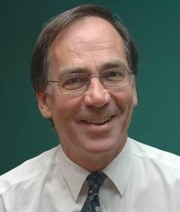At the Africa Ports and Harbours Show, Mike Pinkney, global maritime skills leader of Arup London, will present a round table discussion on 'Future Ports - Sustainable Development' at 2pm on 2 July 2014 at the Sandton Convention Centre.

Mike Pinkney
He converted to maritime engineering over 30 years ago and has spent the last eight years growing the maritime skill base within Arup. His role involves all stages of projects from port master planning through to design and procurement. He has a particular interest in developing sustainable port/city interfaces and projects that are both economically sustainable and financially viable.
"What do we mean by sustainable development of ports? At Arup, we mean an environmentally sensitive development with minimum use of natural resources, a development that satisfies society's demands and an economically sustainable project," states Pinkney.
"Older port cities have grown up around the ports but modern demands for security and health and safety mean that the public is now normally excluded from the areas of commercial exploitation of the waterfront. The port often cuts off the town centre from the sea and generates traffic in the town centre, which contributes to congestion.
"In many port cities, there is an aspiration to relocate the port to a more convenient site, reduce congestion in the city centre, open up the waterfront to public access and release high value development land in the city centre. This follows the successful pattern of such redevelopment of port properties in such cities as Baltimore, London, Rotterdam, Yokohama and Sydney.
"Moving some port operations out of the centre has beneficial effects for society such as reducing pollution, noise and hazardous operations from populated areas. It can also have a sound economic justification, as it can allow berthing for deeper draft modern vessels and modern terminal layout suited to the latest equipment. Provision can be made for green technology such as electrification of equipment.
"However, moving the port will also move a source of employment and there is a risk that in the longer term the city will follow the port. Moreover, even an economically sound and sustainable development may not prove to be financially viable, if the initial development costs are too great and the value released from the old city centre development is not realised quickly.
Paper's topics
- How does the model of port development that we have seen in Europe, Japan, Australia translate into the African context?
- What are the key drivers behind port development in Africa?
- Is there one solution for all situations?
"I look forward to debate and discussion with port authorities and other interested parties at the conference," concludes Pinkney.
Pinkney was part of the transaction advisor team for Durban Dig Out Port and was recently responsible for a pre-feasibility study for Walvis Bay North Port and a lender's technical report for a 25 mtpa coal terminal in Russia. He is also actively involved in engineering solutions for ferry and Ro-Ro berths, bulk and container terminals He has worked around the world and in Africa has been responsible for projects in South Africa, Nigeria, Namibia, Sudan, Libya, Morocco and Togo.
Arup, a Gold Sponsor, will be exhibiting at Stand number 76 in the Africa Rail 2014 exhibition, which is collocated with Ports. For more information, go to www.arup.com.






































